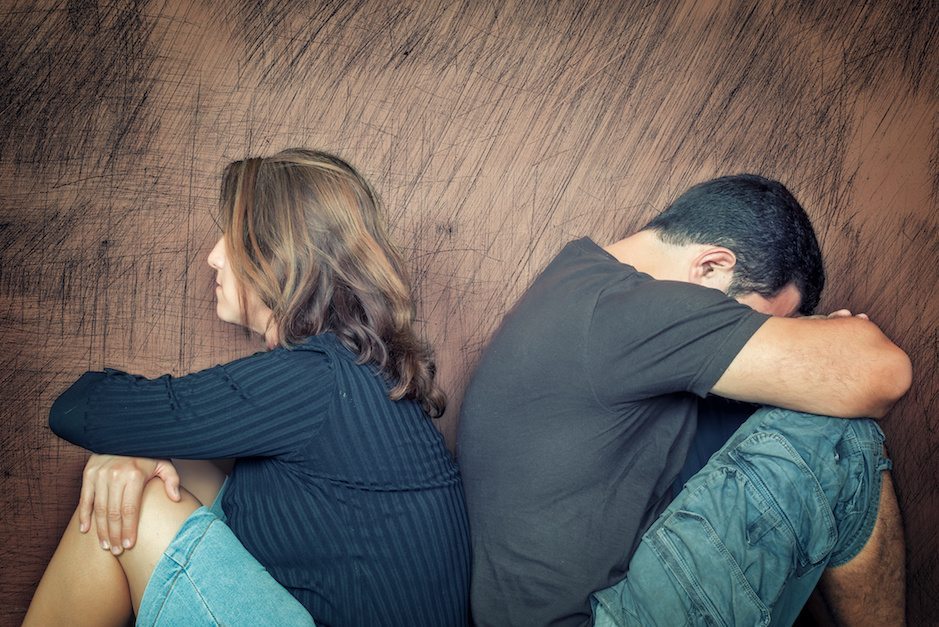Lorelie Rozzano is a guest blogger for Vertava Health.
The Addict’s Family May Not Use Drugs, But They Need Help Too.
We’ve come a long way in understanding addiction. Years ago we used to think addicts were the ones we saw homeless on the street corner. Today we know that’s just not true. Addiction comes in every shape, sex, color and size. It affects every economic class and neighbourhood. Addiction is the great equalizer and has touched one in seven families across North America. However, there is still much to be learned. For example we tend to believe addiction is about drug and alcohol use and it is, to an extent. But drugs and alcohol are only a small part of the problem. The most difficult part of this disease is the way people think, feel and behave. It’s easy to believe the addict is the sick one and the one who needs to make all the changes. But that’s not true, either. The addict is sick but so is their family. Although there may be one person in the family who is the primary enabler (this person will make themselves extremely ill by taking on consequences that belong to the addict) everyone in the family needs to identify problem areas and make the necessary changes to accommodate a healthy lifestyle, going forward.
Addiction is a family illness.
It’s like an iceberg and what you see sticking out of the water is the smallest part, or the fifteen percent. With the addicted person the 15% is their relationship with drugs and or alcohol. With the family member the 15% is their relationship with the addict. The other eighty five percent of this illness are the unhealthy behaviors and characteristics that both the addicted person and their family will struggle with. Both parties become mentally obsessed. The addicted person will constantly think of their substance. The family member will constantly think of the addicted person. Both parties will engage in deceitful behaviour. The addicted person will lie about their usage. The family will lie about covering up for them. Both parties will become defensive when confronted with their unhealthy behavior. The addicted person uses shouting, yelling, swearing, blaming, tears and aggression to get you off their back. The family members will shout, swear and act similarly. Both parties will make excuses for the way they behave. The addict say things like, “I deserve to drink, I had a stressful day at work.” The family member’s state, “I wouldn’t be yelling at you, if you didn’t make me so mad.” Both parties will act like a victim and refuse to take responsibility for their actions. Instead they blame their actions on someone else, a situation or thing. Both parties try and control their usage. The addict will try many times to stop. The enabler will try many times to control them. Both parties keep secrets. Addicts don’t just hide their drinking or drugging. They also hide their thoughts, feelings and the things they do. The enabler hides their feelings and protects the addicted person’s secrets while isolating from the rest of their family. Both parties struggle with guilt. The addict feels guilty for using and creating stress in their home. The enabler feels guilty for saying no, or for blowing up. Both parties are ruled by dishonest thinking. Addicts minimise their usage by saying things like, ‘it isn’t hurting anyone else, or at least I’m not using heroin.” The family attempts to set limits but doesn’t follow through. They justify or minimise their enabling behaviours by saying things like, “this is the last time I’m giving you money,” and then, when they give it again, they justify by saying, “but it was only for food, or gas, or I couldn’t put them out on the street.” Both parties make themselves sick by looking for answers outside of themselves. The addict seeks relief in substance. The enabler seeks relief by placating the addict. Both parties withdraw from friends and family. Struggling with addiction is exhausting for everyone involved. It becomes too tiring to keep up the mask and pretend everything is normal. Seclusion is sought and social gatherings are avoided. Both parties feel miserable and hopeless. It seem like things will never get better. Activities that used to bring pleasure, no longer do. Days become something to get through rather than to be enjoyed. Both parties struggle with depression and anxiety. You can’t remember the last time you felt good. The addict uses more drugs to counteract this effect. The enabler may use food, sleep or even indulge in substance themselves. Addiction affects everyone in the family. Although there is no one size fits all, there are tried and true approaches. It’s important to step outside your home and seek help. No one chooses to be an addict and no family member consciously chooses to get sick. Left untreated, addiction is deadly.
Although the facts may seem grim, there is hope.
It’s important to understand and accept families can be just as sick as the chemically dependent person. When the addicted person is treated and then put back into a sick family system, the chances of a successful recovery are poor. However, when the family is prepared to learn and is open to the process, healing and recovery can begin. If you or someone you know needs help, please call this confidential support line for assistance. 844-470-0410.


